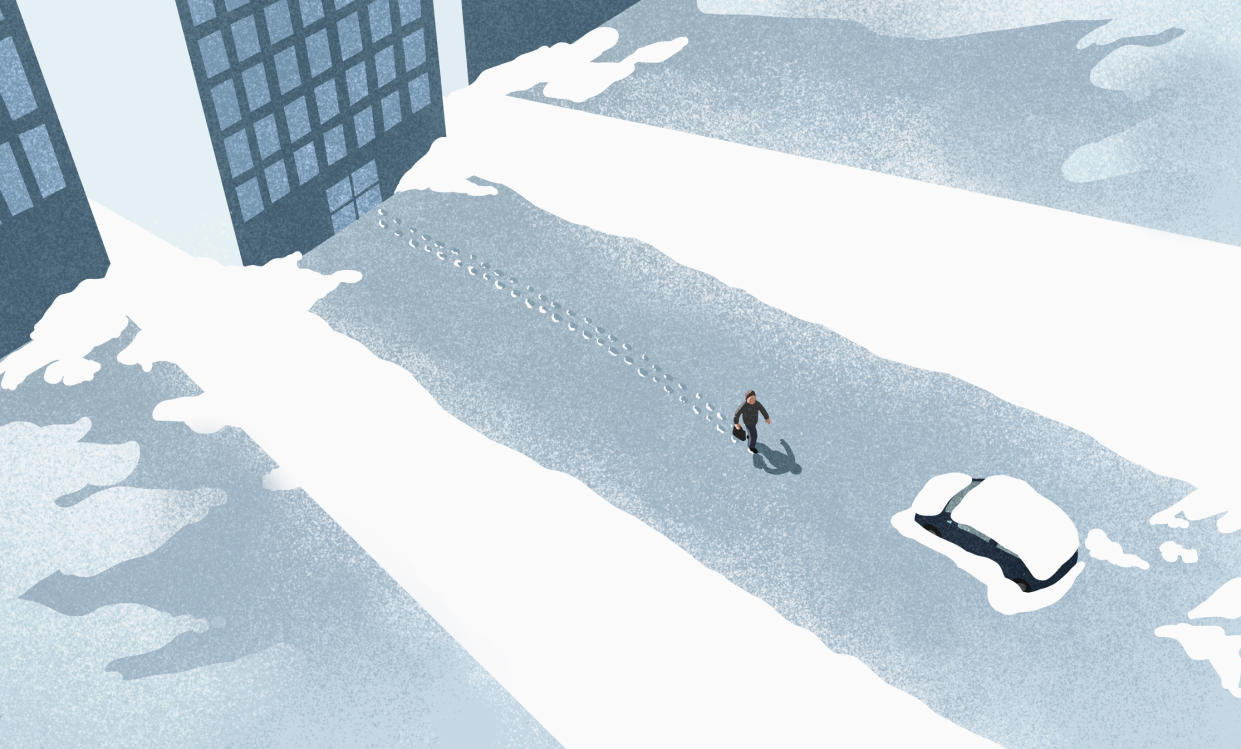Blue Monday: Experts share tips on how to cope during the 'saddest day of the year'

In much of North America, January days are cold and short. January nights are cold and long. The picnics and warm sunny days of summer are a distant memory but the mistakes and overindulgences committed during the holidays are fresh and new.
It’s no wonder January has a reputation for being the saddest month. So much so, that in 2005, a man named Chris Arnell declared the third Monday in January the saddest day of the year, simultaneously coining the term “Blue Monday.”
Arnell’s “Blue Sunday” theory —which he claims to have developed using a statistical mathematical equation— was dismissed as pseudoscience by the scientific community. Eventually, Arnell revealed he was working for travel companies Virgin Atlantic and Virgin Holidays when the theory was published.
ALSO SEE: Rare condition makes woman unable to hear men — and stress may be to blame
Whether it’s the blues à la Arnell or the “mean reds” à la Holly Golightly, it seems that the first month of the year casts a sort of mood spell on its victims.
Dr. Katy Kamkar, a clinical psychologist at the Centre for Addiction and Mental Health (CAMH), said that while Blue Monday might be a myth, the phenomenon of dreary January is very real.
Kamkar places people who are negatively affected by the colder seasons into two general categories. First, there are people diagnosed with seasonal affective disorder (SAD), a clinical depression that tends to be affected by the time of year.

“The symptoms of seasonal affective disorder (SAD) typically appear around fall or early winter and they improve during spring or summer time,” Kamkar told Yahoo Canada Style.
A person who experiences these symptoms nearly every day for at least two weeks may be suffering from clinical SAD, especially if symptoms interfere with their work or personal life:
Sad or low mood
Sense of hopelessness
Low energy
Increased appetite and possible weight gain
Cravings for carbohydrates
Increased sleep or hypersomnia
Isolation or reduced interest in activities
Suicidal ideation
Someone diagnosed with SAD might work with their doctor to develop a treatment plan, which could include therapy or medication to treat anxiety or depression.
ALSO SEE: ‘He is my baby boy’: Mother pens emotional message after son dies from heroin overdose
In other cases, Kamkar says people who don’t otherwise suffer from depression might simply be impacted by a combination of gloomy weather and life stressors.

“We get a variety of factors in addition to the reduced daylight, the reduced sunlight, winter weather,” Kamkar said. “Sometimes it can be post-holiday stress and having to deal with some of the financial strains on the budget following the holidays. Maybe there are some interpersonal family conflict or family stressors that might have occurred during the holidays, or illnesses within the family or loved ones.”
According to Kamkar, even the struggle to keep up with a New Year’s resolution can be a common trigger for the January blues.
Beating the blues
The good news is that most people who feel the ill effects of January can manage them through healthy routines.
“As human beings we function best when we have healthy routines and healthy structure,” Kamkar notes. “Always emphasizing the importance of self-care: proper sleeping habits, eating healthy, and setting exercises every day. You want to create your own individualized mental health package.”
ALSO SEE: Calgary woman’s mystery illness was rare cannabinoid syndrome: What is it?
The importance of eating well and getting enough sleep lies in the connection between the body and the mind. To borrow a phrase from computer science: Garbage in, garbage out.
“Our mental health affects our physical health, and our physical health affects our mental health,” Kamkar reiterated. “The mind-body connection is always important.”

Another key factor of mental wellbeing, Kamkar says is being gentle with oneself.
“It’s an ongoing process,” she assures. “We need to take it one step at a time and set realistic expectations.”
Dayna Armstrong, a Toronto-based florist, has lived with chronic depression for roughly 10 years and is learning to mitigate winter’s effects on her mood.
After realizing that her depression worsened each January, Armstrong began experimenting with self-care methods. The seasonal nature of her job – very busy from May until December and then slow until spring- wasn’t helping.
ALSO SEE: Does a hangover cure exist? Canadian author thinks he may have found it
“It’s not so much a financial strain as it is that I have all this time on my hands,” she explained.
Last fall she purchased a therapeutic SAD lamp, which uses specific wavelengths of light to replicate some of the beneficial effects of natural sunlight. Since November, she spends half an hour each morning sitting under the lamp and has noticed a change in her mood.

“I love it,” she said. “It really works, though I don’t know if it’s the actual light therapy or the fact that it forces me to have a good morning routine, which I think is really helpful.”
Armstrong also makes an extra effort to limit her alcohol consumption throughout the winter in order to avoid the “booze blues.” She also opts to walk to work for the sunlight and the exercise, monitors her work-life balance and adds herbal supplements, including maca root powder, to her breakfast.
“So far so good this year,” she said. “I’m really a routine person, so having a good, healthy morning routine has made a big difference.”
If you or someone you know needs support for mental health concerns, Ontario offers several options for free, confidential help. To speak with a registered nurse through Telehealth Ontario, dial 1-866-797-0000. To speak with staff on the Mental Health Helpline, dial 1-800-531-2600.
Let us know what you think by commenting below and tweeting @YahooStyleCA!
Follow us on Twitter and Instagram.
Check out Yahoo Canada’s podcast, Make It Reign — our hot takes on all things royals in a non-stuffy way — on Apple Podcasts and Google Podcasts.


